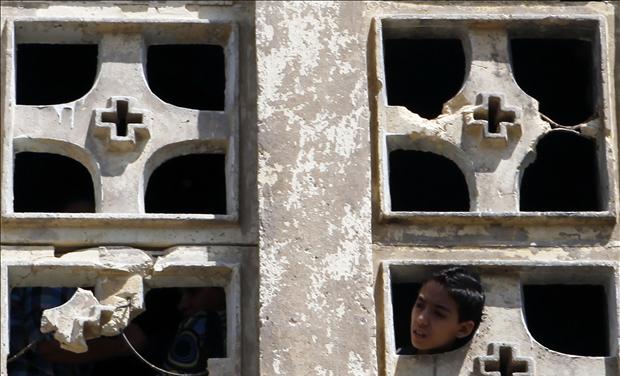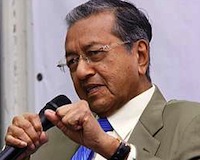We are known to have rich reserves of natural gas. So why is
Petronas facing a shortage in gas supply, which has resulted in
crippling losses for Tenaga Nasional?
Petronas used to deliver 1200 million standard cubic feet per day (mmscfd) of gas to the power generation sector. The supply has now dropped to around 900mmscfd this year.
The shortage is squeezing the life out of TNB, which has had to resort to fuel substitutes that are six times more expensive than gas. TNB posted serious losses in its third quarter and its fourth quarter results could be just as dire.
A proposal has reportedly been put forward that some of the independent power producers should share the higher costs.
Energy costs for TNB in FY2010 added up to RM19.1bn of which RM12.5bn went to the IPPs, reported The Edge last month. TNB will now have to shell out an additional RM400m per month in fuel costs. Imagine, it had to reportely put a tender out for fuel supply on two occasions and even had to import electricity from Singapore! The gas supply situation must be really grim if you have to import electricity from Singapore!
The worst part is that, if nothing is done, the higher costs could soon be passed to consumers, perhaps in December or after the coming general election, which some believe could be held by the end of the year.
According to Petronas, the gas shortage is due to subsidised gas prices (tell us, who benefited the most?) and the use of gas as a substitute for coal and this has spurred the demand for gas. Declining reserves and aging facilities have also taken its toll, it added.
Petronas also highlights the following:

Less well known is the impact of a fire last December at the Bekok C gas platform, located 200km off-shore from the east coast of the peninsula. The resumption of full supply has been repeatedly delayed.
But even if supply from Bekok C is fully restored, will the shortage be resolved? Perhaps unlikely.
The funny thing is that Malaysia is ranked 14th in the world in terms of its gas reserves, according to the Gas Malaysia website.
A thorough independent audit is needed on all the country’s gas platforms and the delivery process to find out what is happening to our gas supply and the reason(s) for the shortage.
Meanwhile, perhaps someone from Petronas can tell us what’s happening?
Petronas used to deliver 1200 million standard cubic feet per day (mmscfd) of gas to the power generation sector. The supply has now dropped to around 900mmscfd this year.
The shortage is squeezing the life out of TNB, which has had to resort to fuel substitutes that are six times more expensive than gas. TNB posted serious losses in its third quarter and its fourth quarter results could be just as dire.
A proposal has reportedly been put forward that some of the independent power producers should share the higher costs.
Energy costs for TNB in FY2010 added up to RM19.1bn of which RM12.5bn went to the IPPs, reported The Edge last month. TNB will now have to shell out an additional RM400m per month in fuel costs. Imagine, it had to reportely put a tender out for fuel supply on two occasions and even had to import electricity from Singapore! The gas supply situation must be really grim if you have to import electricity from Singapore!
The worst part is that, if nothing is done, the higher costs could soon be passed to consumers, perhaps in December or after the coming general election, which some believe could be held by the end of the year.
According to Petronas, the gas shortage is due to subsidised gas prices (tell us, who benefited the most?) and the use of gas as a substitute for coal and this has spurred the demand for gas. Declining reserves and aging facilities have also taken its toll, it added.
Petronas also highlights the following:
- Subsidised gas prices since 1997 created impetus for gas demand as a substitute for coal and oil = pushing demand beyond organic requirements.
- Declining reserves coupled with aging facilities stretched supply dynamics = eventual gap between supply and demand.
- Little room for error on supply management.
- We have intensified mitigation actions to alleviate the gas shortage.
- Material portion of future supply = derived from imports at market prices = 1997 subsidies gradually withdrawn.

Less well known is the impact of a fire last December at the Bekok C gas platform, located 200km off-shore from the east coast of the peninsula. The resumption of full supply has been repeatedly delayed.
But even if supply from Bekok C is fully restored, will the shortage be resolved? Perhaps unlikely.
The funny thing is that Malaysia is ranked 14th in the world in terms of its gas reserves, according to the Gas Malaysia website.
As at 1 January 2008, the natural gas reserves in Malaysia stood at 88.0 trillion standard cubic feet (tscf) or 14.67 billion barrels of oil equivalent, approximately three times the size of crude oil reserves of 5.46 billion barrel.So, I repeat the question, why are we facing a gas shortage? The reason often cited is ongoing maintenance work. But that sounds vague. So what’s really going on?
Of this, 33.5 trillion standard cubic feet (tscf) or 38% is found off the East Coast of Peninsular Malaysia, 41.8 tscf (48%) offshore Sarawak and the remaining 12.7 tscf (14%) offshore Sabah. At the current rate of production, Malaysia’s gas reserves expected to last another 36 years.
In 2007, Malaysia’s production of natural gas averaged 7.01 bscf per day. As at 31 March 2008, Malaysia had 88 producing fields of which 61 were oil fields and 27 gas fields. About 50% of these producing fields are solely operated by PETRONAS’s subsidiary, PETRONAS Carigali.
A thorough independent audit is needed on all the country’s gas platforms and the delivery process to find out what is happening to our gas supply and the reason(s) for the shortage.
Meanwhile, perhaps someone from Petronas can tell us what’s happening?




 “The
investigation results concluded that there were unethical actions which
were beyond the SOP of the Royal Malaysian Police when enforcement was
performed on rally participants who were wrongly using the hospital
premises,” said Mahmood.
“The
investigation results concluded that there were unethical actions which
were beyond the SOP of the Royal Malaysian Police when enforcement was
performed on rally participants who were wrongly using the hospital
premises,” said Mahmood.  “However,
allegations that there was tear gas fired inside the hospital compound
are not true because it happened at a public carpark outside the
hospital compound,” said Mahmood.
“However,
allegations that there was tear gas fired inside the hospital compound
are not true because it happened at a public carpark outside the
hospital compound,” said Mahmood.  “(The
Home Ministry) will not compromise on disciplinary action if it is
found that there are (staff) who are proven to have violated operational
guidelines,” he said.
“(The
Home Ministry) will not compromise on disciplinary action if it is
found that there are (staff) who are proven to have violated operational
guidelines,” he said. 













